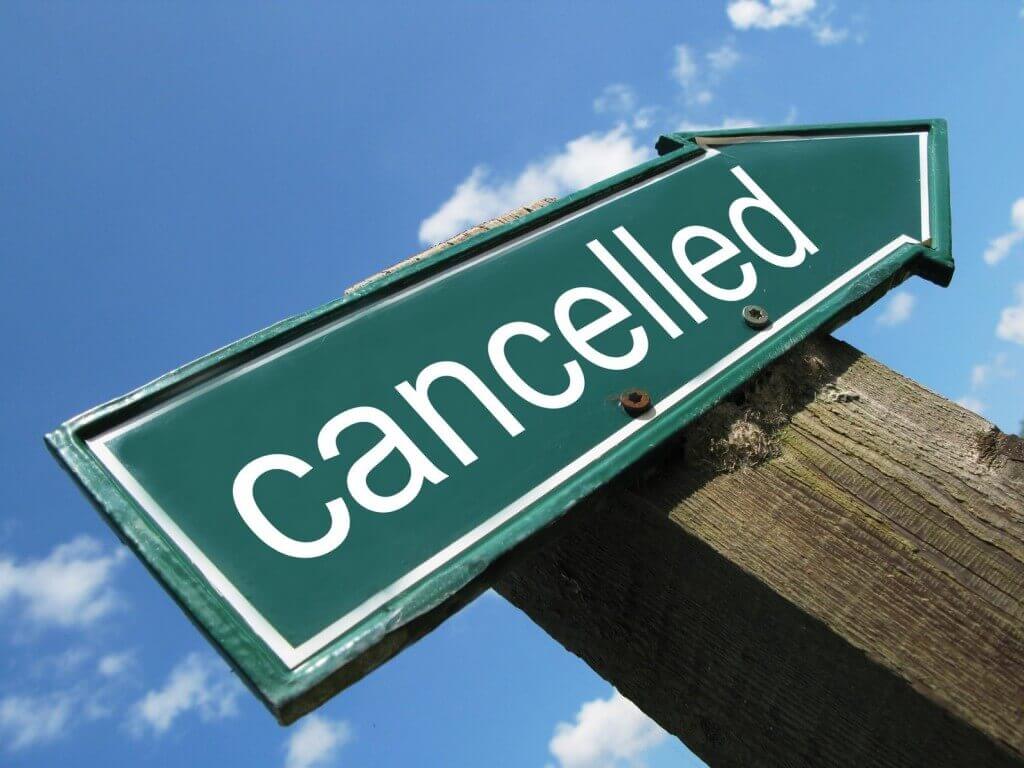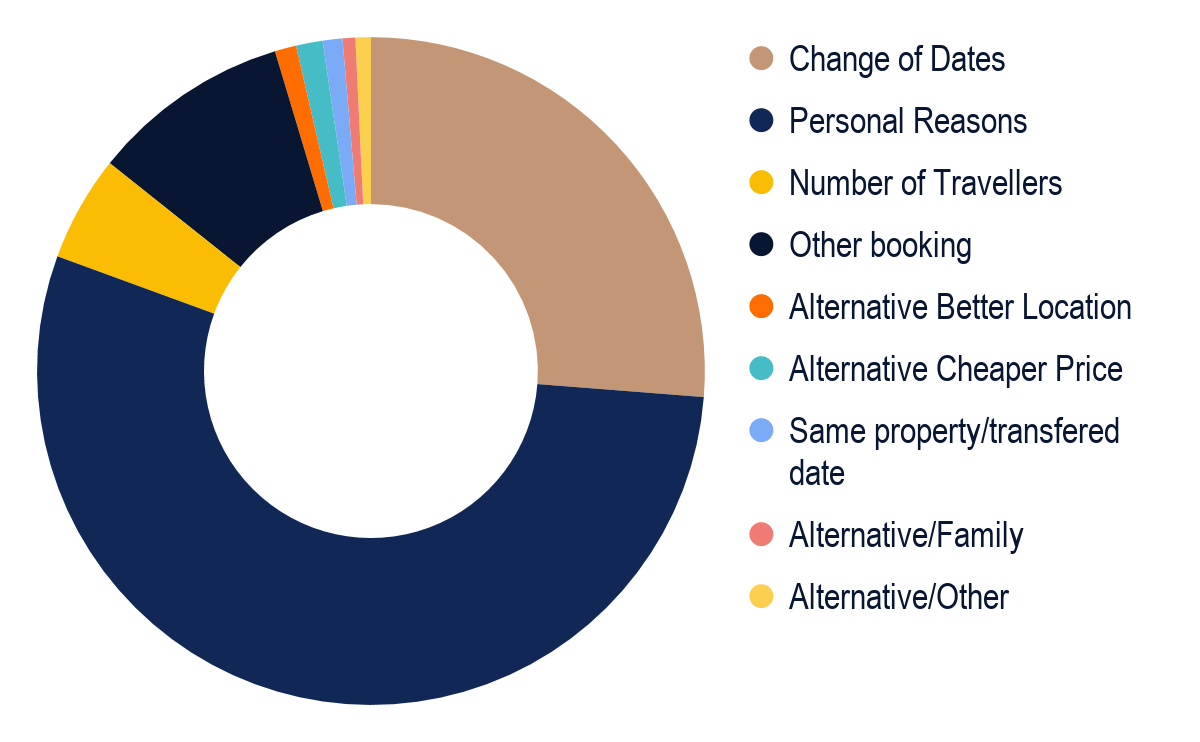
We recognise that cancellations are part of doing business in the hospitality industry and that a certain level of cancellations are inevitable and genuine.
NB: This is an article from Avvio
However, we are trying to tackle the “pre-order mind set” segment of the market – when guests reserve multiple potential venues in advance of their trip and cancel all but one!
We are always striving for ways to reduce room cancellations and have started to see a positive trend with total cancellations down 3% from 20% in 2018 to 17% in 2019. Our goal is to continue tackling this challenge in 2020 and to encourage our customers to adopt our five best practice strategies to reduce cancellations.
Early 2019 we started tracking “reasons for cancellations” for our customers. While 54% of people tracked personal reasons for cancellation 26% of people choose change of date and 10% cancelled as they had made an alternative booking.

1.Be aware of what percent of your revenue on the books is secured versus cancellable
The market as we know it is changing, with many potential guests looking at their hotel reservations similar to a pre-order on ecommerce sites. We encourage our customers to be conscious of the percentage of business on the books that is secured vs. non secured.
We also recommend that as best practice you are promoting your non-cancellable rates clearly on your website, booking engine, through social media campaigns and as site links on your Google Adwords, Bing and Metasearch.
2.Use cancellation policies functionality
One of the key ways we tackled the issue in 2019 was the introduction of our cancellation policy functionality . A new system has been implemented for handling cancellation requests made for room reservations. Instead of manually inputting the cutoff on a per-rate basis, you can now map rates to customisable cancellation policies. The policies also allow you to set multiple cutoff times or implement penalties for late cancellations.
3.Be mindful and creative with your cancellation policies
We are creatures of habit in the travel industry and the norm is to offer guests a cancellation policy of 48/24 hours in advance of arrival. However, in 2019 we saw some hotels review this strategy – with some industry leaders instead offering a “cooling off” period of 24/48 hours. It is certainly food for thought for hotels experiencing above average cancellation levels. We always recommend total transparency and clarity with guests when creating your cancellation policies.
4.Be aware of time periods and geographical markets where you are most at risk of cancellations
This can vary from hotel to hotel and in 2019 we noticed some interesting trends; 26% of Irish cancellations were made 29-60 days in advance, with 53% of US cancellations made 91+ days in advance of stay. Another interesting trend is that Q1 tends to see the highest level of cancellations. While January may be the busiest month for bookings, it is also the most susceptible to cancellations – with 12% of bookings cancelled.
5.Communicate with your guests post booking
Stay in touch with your guests once they have booked. This is a great opportunity to communicate with your pre-stay guests and make them feel welcome through personalised messaging. Pre-stay emails are also a great way to maximise ancillary revenue opportunities such as dinner x 2 to truly personalise each guest’s experience.




